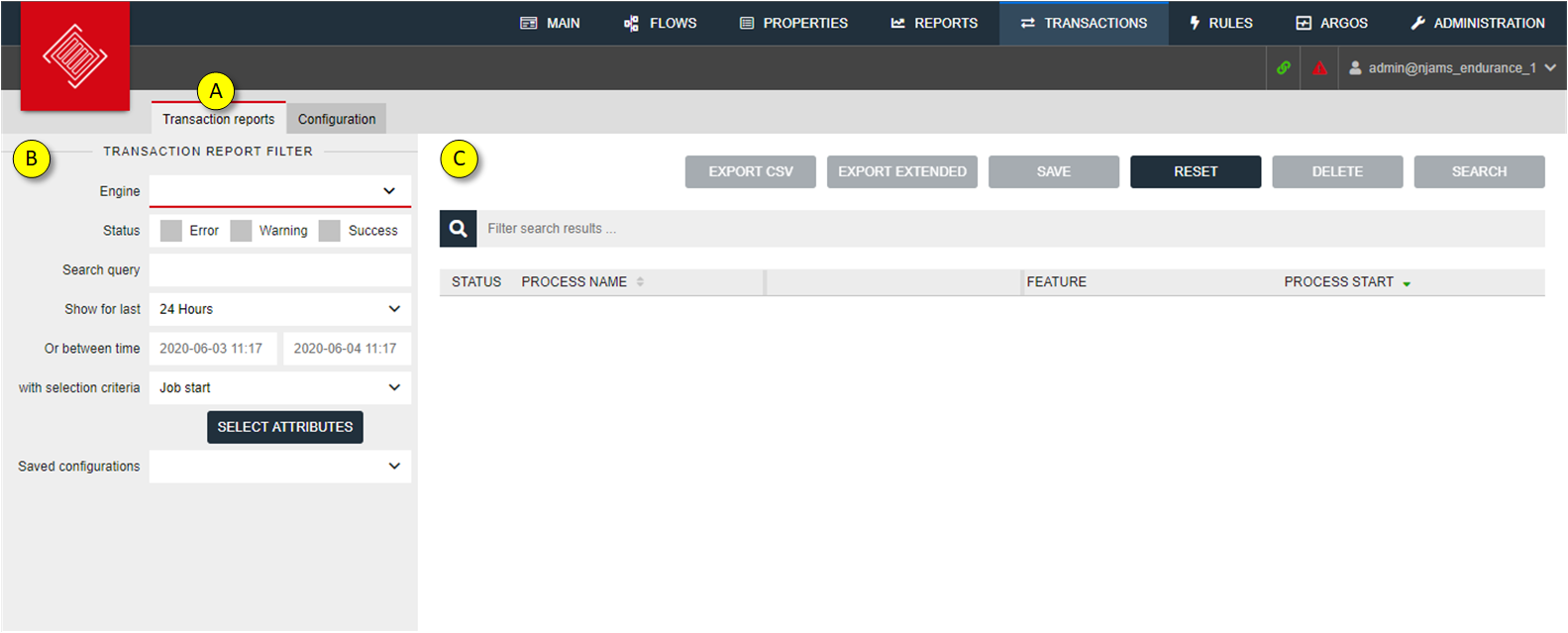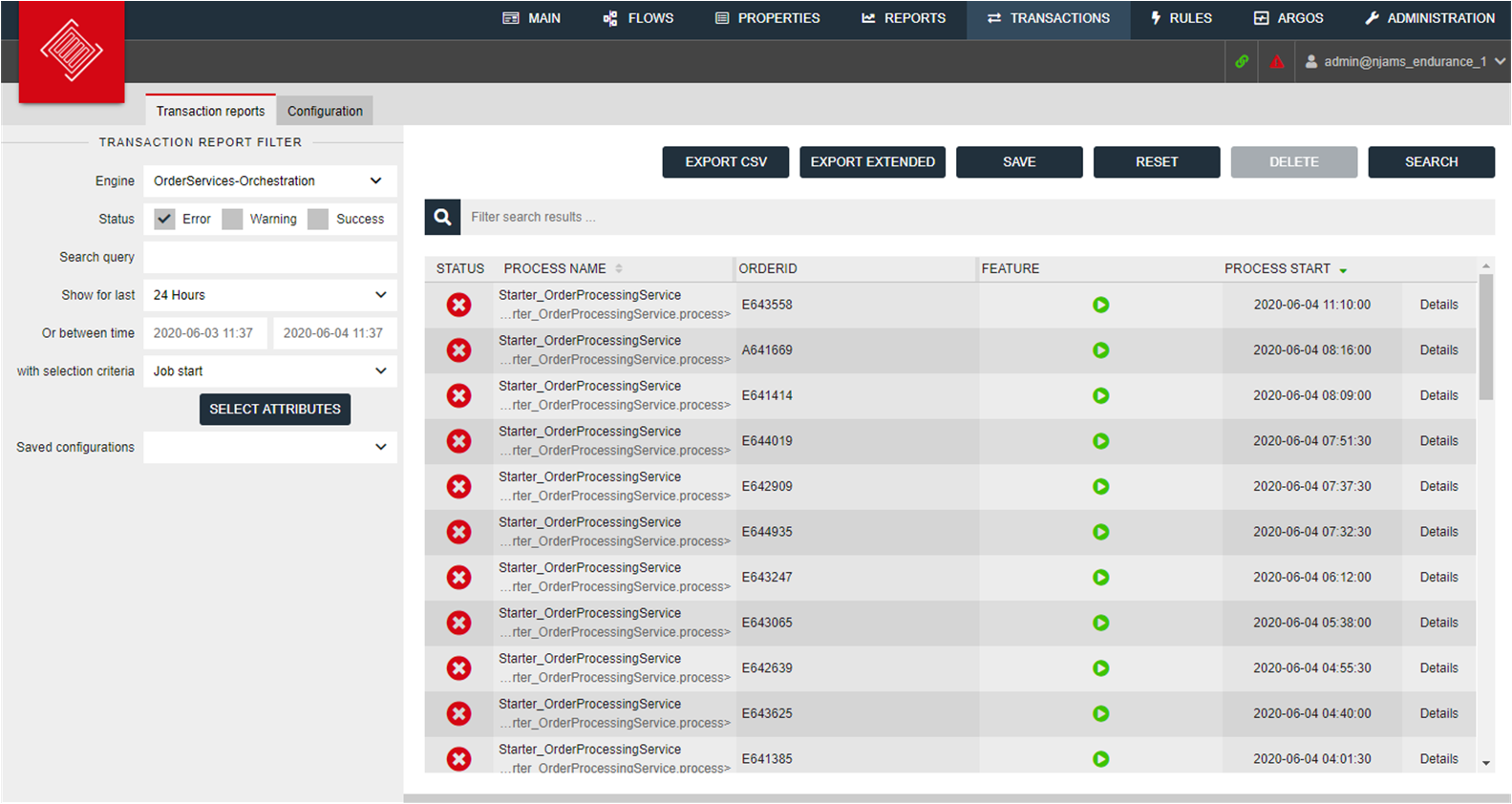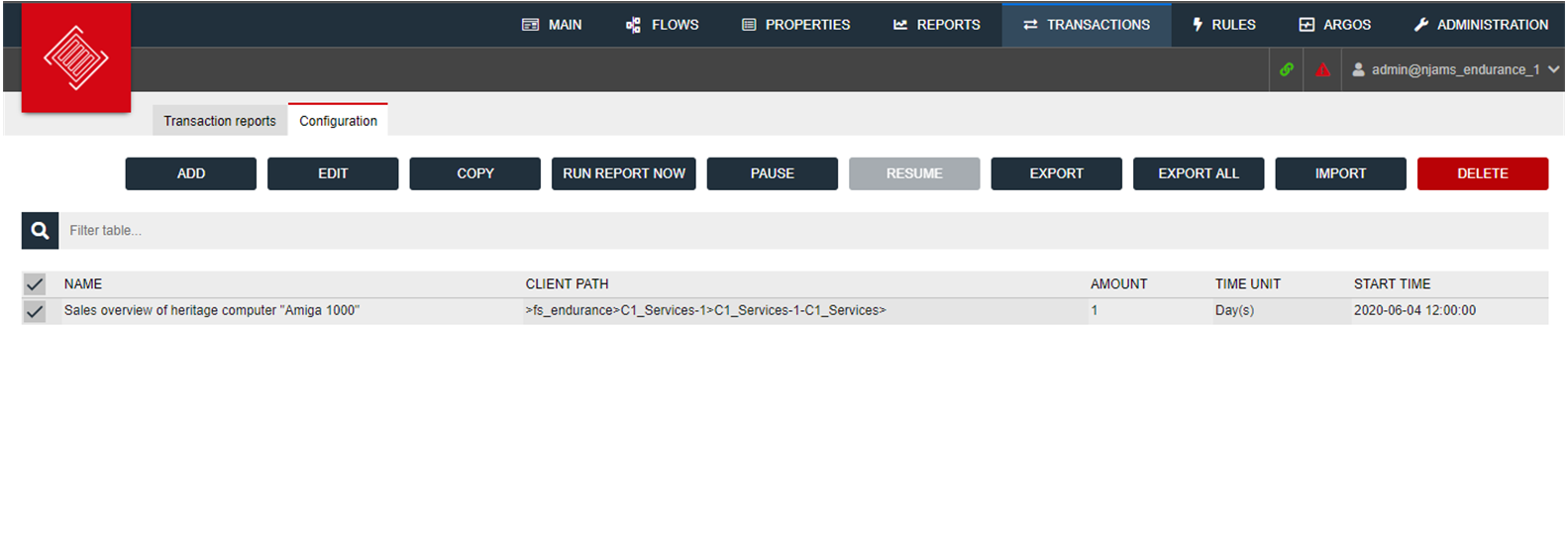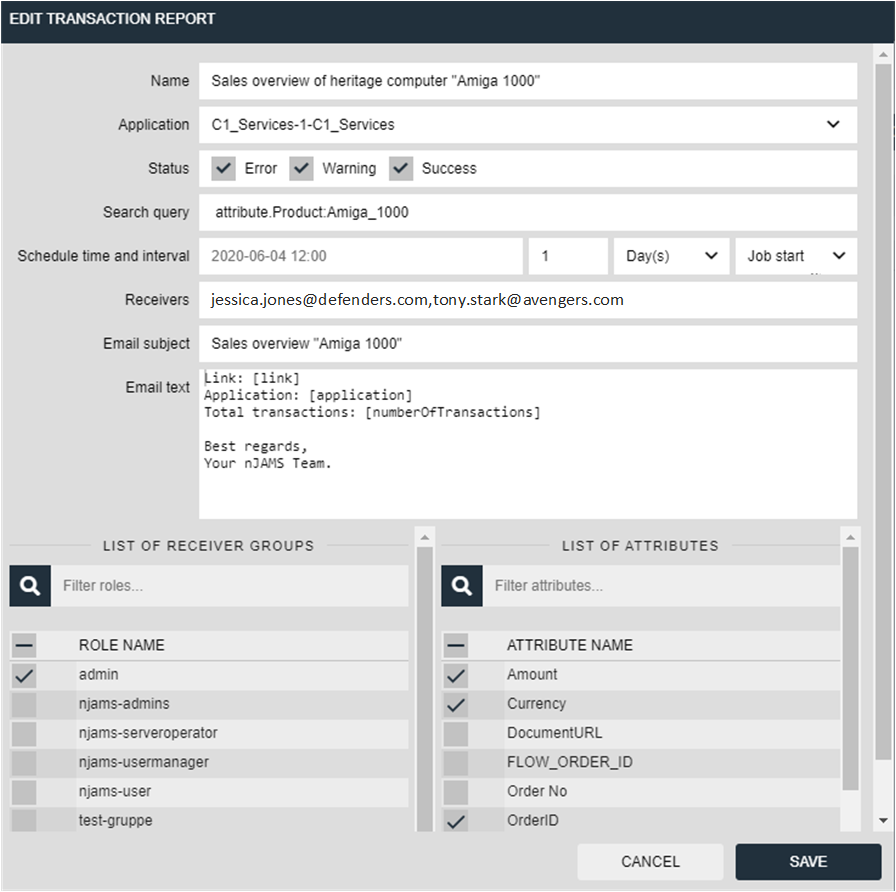Transactions#
The Scheduled Transactions Report allows you to frequently create a report of process transactions and to send the report by email. For example, you may want to receive a report every morning about errors of a particular application from the previous day.
The Transaction Report can be configured to search for an individual resultset of process transactions. You can specify one or more recipients that should frequently receive the Transaction Report by email.
Open the Transaction Reports from the main menu by clicking on Transactions:

Transaction Error Reports are based on a particular application and a period of time. Configuration is used to define a schedule to frequently generate an Error Report.
Filter criteria for the Transaction Report
Engine: select a Domain Object from type engine from the combo box
Status: specify the status of the process execution, multiple selection is possible
Search query: enter a complex query as known from the query on Main page
Show for last: pick a relative time frame
Or between time: pick an absolute time frame
With selection criteria: specify whether time frame is related to jobstart or jobend
Select attributes: select available attributes to be part of your transaction report
Search results according to filter
The following example represents an “Order Report”, which applies to application “Order Orchestration” and returns the errors of the last 24 hours:
The following configuration schedules the report “Sales overview” every day at 12:00.
The report queries for order entries, where custom attribute Product matches a certain value, and sends an email frequently to a list of recipients:
The email body contains placeholders for the
link to the Transaction Report within nJAMS Server
name of the application
total number of transactions
While typing press
ctrl-spaceto get a list of available placeholders:


